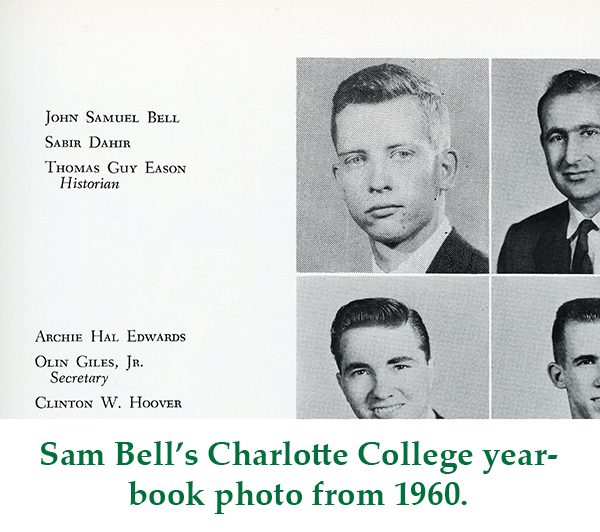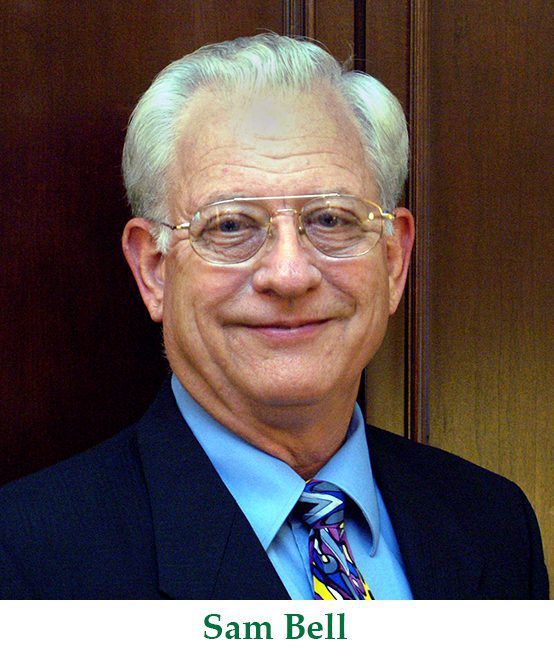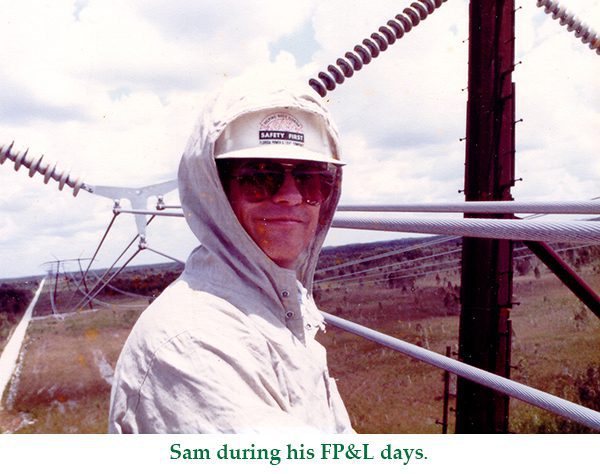Sam Bell – 1959-60 Charlotte Engineering Alumnus

The bachelor’s, master’s and doctoral degree programs the Lee College of Engineering delivers today were built upon a foundation of earlier engineering and technology programs taught at Charlotte College. One of the many students who took advantage of these engineering classes in Charlotte was Sam Bell, who in 1959 and 1960 earned the associate’s degree that led to his further engineering studies and a 30-plus-year career as an energy engineer.
Born in February of 1938, Bell graduated from Harding High School in Charlotte and then went into the U.S. Navy before enrolling at Charlotte College.
“I actually found out I could get out of the Navy two months early if I went to college,” Bell said, “which was one of the motivations for going to school. Another motivation was the engineering curriculum at that time didn’t require a foreign language and I had never been able to pass Spanish.”
The draw of doing his first two years of study at Charlotte College was the economics. “I didn’t have a dime,” Bell said. “I came out of the Navy with nothing.”

Almost all of the Charlotte College students worked during the day, he said. “It was tough time for a lot of folks. I worked for an accounting firm in town, running a printing press for them in the mornings and then going to school at night. They were real nice to me and letting me work around my school schedule. If it hadn’t been for that job, I don’t know what I would have done.”
Of the 500 or so students attending Charlotte College at that time, about 200 were studying engineering. Classes began at 4 p.m. and went to 10 p.m. Much of the curriculum was basic math, chemistry, physics and English. Most of the engineering courses taught were electrical, with little civil or mechanical engineering offered.
“I wanted to go into power and was convinced I was going to be a utility engineer,” Bell said. “There were a lot of courses designed around utilities like electrical machinery and transformers. And we did have electrical labs with motors and stuff like that.”
In terms of facilities, Charlotte College was essentially the basement of Central High School in Charlotte. The first little office, just inside the door to this basement, was the office of college president Bonnie Cone.
“Every afternoon you had to walk by her office and she’d wave,” Bell said. “She was very personable and knew all the students by name. For years after I graduated she sent me a Christmas card. She was quite a lady.”
Charlotte College was just starting to make plans to have its own campus when Bell was there.
“A friend of mine called me one day and said ‘Hey, let’s take a trip.’ I said ‘where do you want to go?’ He said ‘They just bought a whole bunch of property for the new Charlotte College. Get your .22 and let’s go out there and do some shooting.’ So we took a couple .22s and went out in the middle of this field. There was an old barn out there, which was the only structure within miles. There wasn’t anything else to shoot at, so we had a lot of fun shooting up that old barn.”
With his associate’s degree from Charlotte College, Bell had the freshman and sophomore courses needed to transfer into North Carolina State as a junior. He continued his electrical studies at NC State with the goal of being a power engineer.

“In those days you were either a power engineer or electronics engineer. I do remember one class where a professor told us he was going to go over some stuff that wouldn’t be on the exam, but he thought it was important that we know about it. It was transistors.”
Bell succeeded in his goal of becoming a power engineer, working for 30 years at Florida Power and Light. Towards the end of his career at FP&L he was president of a subsidiary that built renewable power sources such as solar, geothermal and wind mills. After retiring from FP&L, he wound up in Tallahassee running the municipal utilities system of electric, water, natural gas and such for a few years.
“Going from the private sector to the public was quite a change, but it was a lot of fun,” Bell said. “And overall I have to say my whole career was fun. It really was.”